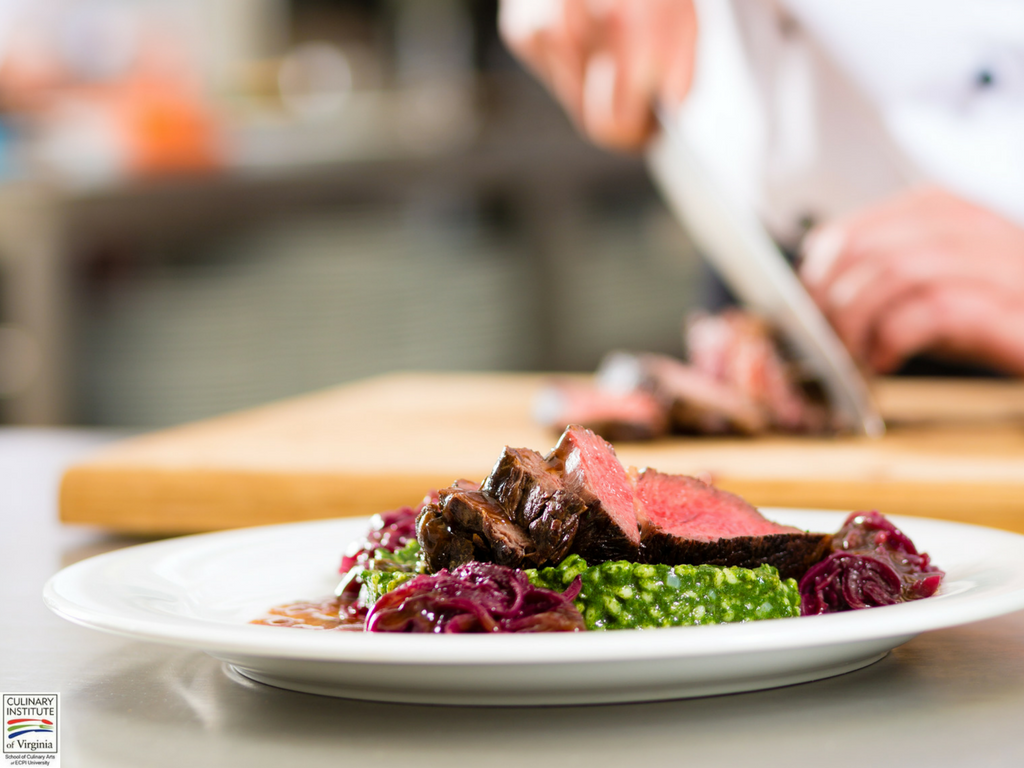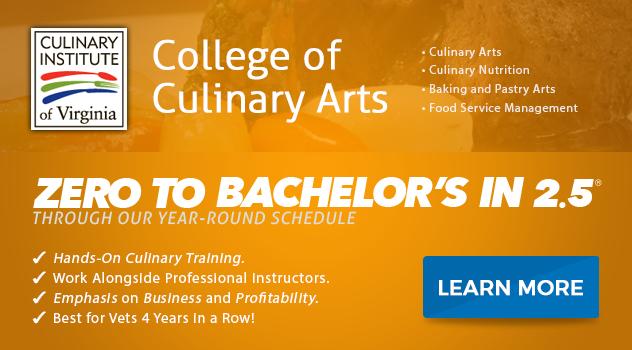What do I Need to Do to Get a Degree in Culinary Arts?
The culinary arts have always been a challenging and rewarding field for those who are creative and diligent. It is home to the pastry chefs who create elaborate confections that are as much a feast for the eyes as they are for the mouth, and equally so to the administrators who establish menus for large institutions.
Cooks for family restaurants may not be as famous as the four-star chefs of chic bistros, but they both work to balance novelty and familiarity in the only art judged on taste. A degree isn't required for some jobs in the culinary arts, but earning one can definitely set you apart from the competition.
Science in the Kitchen
Culinary arts degree programs include classes on the science behind cooking. How heat, pressure, and various chemicals affect the foods we eat is essential knowledge for any cook, but crucial for culinary professionals, who have little time for error. Budding culinary artists also need to know how diners experience flavor and texture, and classes will cover how the senses interact to create a taste experience.
You'll learn the history of the culinary arts, including the development of new ingredients, techniques, and cultural trends that shape our palates. Classes on cooking techniques focus on the tools and practices that improve efficiency and consistency in kitchens where every second counts.
A Recipe for Safety
Home cooks can rely on basic kitchen safety information but in professional kitchens, safety becomes more complex. Professional kitchens involve industrial equipment and must adhere to safety and sanitation standards. Home kitchens rarely involve multiple cooks, but when you enter a professional kitchen, you may be working with a dozen or more people in a small space. A degree in culinary arts will help you develop the skills you need to keep yourself, your colleagues and your diners safe.
Making Calories Count
Nutrition and dietary concerns are a core aspect of training in the culinary arts. Schools and other institutions employ chefs to ensure nutritionally sound menus. As researchers uncover more about how diet affects health, those tasked with feeding others will need the most complete information available. Students in the culinary arts also master the art of accommodating special dietary needs. Combined with a grounding in food science, chefs can respond to a request from a diner with allergies or ethical concerns about certain ingredients with equally delicious offerings.
Rise to the Top with Pastry
While bakers and pastry chefs have career paths that are distinct from chefs and cooks, all culinary artists benefit from learning how batters and doughs work. Culinary arts degree programs cover the qualities and strengths of quick breads and yeasted doughs, and how batters can rise as high as an angel food cake or lay flat as a pancake. Studying strudels and more rustic materials help culinary artists create crisps and cobblers that complement their fillings by providing textural contrast.
Put Your Service to the Test
Cooking is an art, and that art can be a performing art. A degree in the culinary arts will prepare you for table side cooking and presentation styles that turn the dining room into its own form of theater. In the often intensely competitive field of running a restaurant, it's not enough to merely offer good food. Diners are looking for an experience, and you need the experience to offer one.
A Pinch of Business Sense
To run a kitchen well involves skills beyond cooking. A chef is a master cook and also central to administering the business of providing food. A degree in culinary arts will involve classes in the business of running an establishment that provides food, from dining room organization to personal branding. Chefs are team leaders, and need to know how to assemble and manage a team that works well together when the heat is on.
Layers of Knowledge
A career in the culinary arts involves much more than cooking well. To run a business based on providing edible art involves a knowledge of science, art, history and leadership. In a growing and challenging field, a degree combined with experience is a potent combination. If you want to earn an Associate of Applied Science in Culinary Arts, ECPI University’s Culinary Institute of Virginia can give you the education you need to make a difference in the field. For more information, connect with a friendly admissions counselor today.
It could be the Best Decision You Ever Make!
DISCLAIMER – ECPI University makes no claim, warranty, or guarantee as to actual employability or earning potential to current, past or future students or graduates of any educational program we offer. The ECPI University website is published for informational purposes only. Every effort is made to ensure the accuracy of information contained on the ECPI.edu domain; however, no warranty of accuracy is made. No contractual rights, either expressed or implied, are created by its content.
Gainful Employment Information – Culinary Arts - Associate’s
For more information about ECPI University or any of our programs click here: http://www.ecpi.edu/ or http://ow.ly/Ca1ya.





